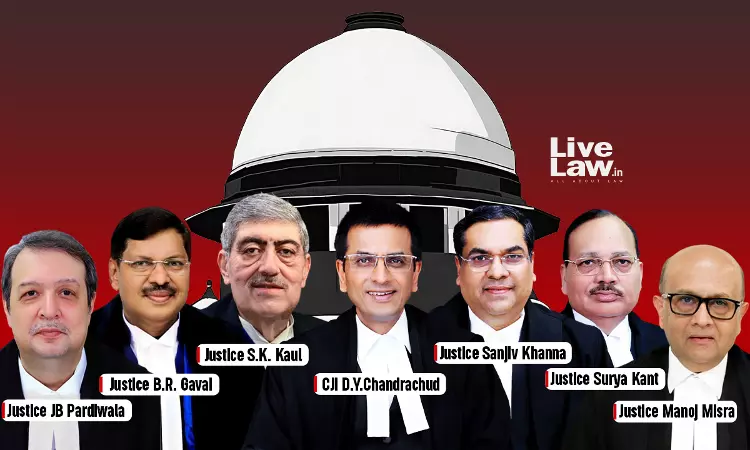Arbitration Clauses In Unstamped Agreements Enforceable : Supreme Court 7-Judge Bench Overrules 'NN Global' Decision
Padmakshi Sharma
13 Dec 2023 10:49 AM IST

Next Story
13 Dec 2023 10:49 AM IST
A seven-judge bench of the Supreme Court on Wednesday (December 13) ruled that arbitration clauses in unstamped or inadequately stamped agreements are enforceable. Insufficiency of stamping does not make the agreement void or unenforceable but makes it inadmissible in evidence. However, it is a curable defect as per the Indian Stamp Act, the Court pointed out.The Court overruled the...
